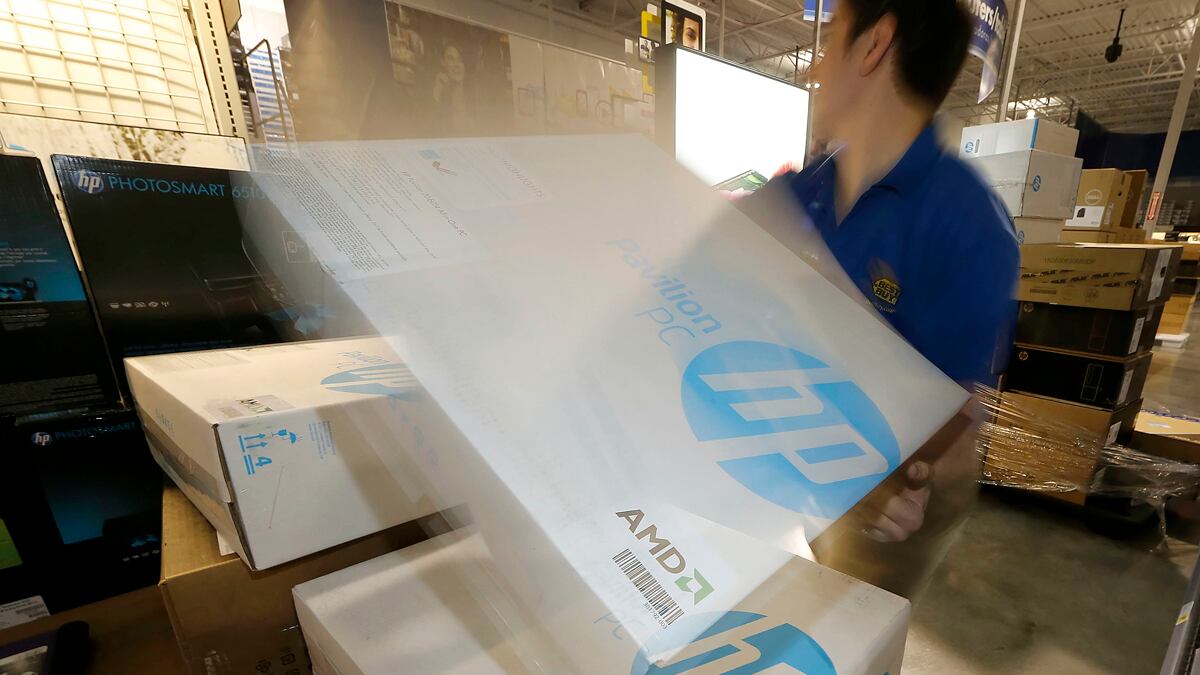This column first appeared on Breakingviews.com, the global financial-commentary service of Thomson Reuters.

David Packard and William Hewlett may be Silicon Valley’s answer to Romulus and Remus in Rome’s founding story. But the era of their brainchild, Hewlett-Packard, as an everything-to-everyone conglomerate is coming to an end—and much sooner than the Roman Empire did. Chief Executive Meg Whitman and HP’s board, not to mention investors, won’t stick around for an arduous and risky five-year turnaround project. Breaking the company into good bits and selling bad ones must be on the agenda for 2013.
The company famously founded in a Palo Alto garage in 1939 is in a barely controlled descent. Its PC division is shrinking at a double-digit annual rate, and sales from its supposedly steady IT services, enterprise hardware, and printing operations are also in decline. Turning around one failing division would be hard enough—just look at Michael Dell’s struggle at his eponymous PC firm. HP’s management has the unenviable task of fighting several multi-alarm fires simultaneously.
Accomplishing such a feat is rare in the tech world. IBM did it under Lou Gerstner in less trying times by jettisoning hardware lines and bulking up in the more easily defended and higher-margin software business. There’s little reason to believe investors have the patience and trust in HP’s management team to allow a similar attempt, especially after the latest debacle, an $8.8 billion writedown of the Autonomy software business the company acquired for $11.1 billion just a year ago.
Having lost her run to become California’s governor, Whitman took one for the Valley by volunteering to lead HP after the board forced out her predecessor, Leo Apotheker. But the scale of the company’s problems and the work required to fix them weren’t fully apparent at the time. Board member and activist investor Ralph Whitworth, who successfully pushed for breakups at ITT and L-3 Communications, is prohibited by a standstill agreement from launching a proxy fight to splinter HP. But nothing precludes him from trying to persuade the board to take that step.
Naturally enough, the company says splitting itself into pieces would be a mistake. HP argues that it is cheaper to buy parts in bulk, that customers often prefer to deal with one supplier, and that its tarnished brand still has value. But with the stock valued at less than four times estimated earnings for 2013, any benefit from these largely theoretical synergies have been fully eclipsed in the eyes of investors by the cons of a bloated bureaucracy, managerial confusion and research-and-development inefficiency.
So much so, that breaking up the firm looks like a financial no-brainer. HP’s market capitalization is about $27 billion. That’s scarcely more than half the price its parts would fetch as standalone entities. At least that is the conclusion from a new Breakingviews calculator that compares revenue multiples at each of HP’s divisions to similar publicly traded companies. This isn’t a precise valuation method, but it’s a way to assess the worth of troubled businesses since profitability can be swamped by inefficiencies or flattered by aggressive accounting.
Start with the company’s personal computing division, which had about $36 billion of revenue in the most recently reported 12 months. Rival Dell is valued at 24 percent of sales on the same basis. By that measure, the PC unit would be worth about $9 billion. The cash-generative printing division had about $25 billion of sales. At the same multiple of that as competitor Lexmark that business could also be worth about $9 billion. HP’s enterprise servers and storage business would fetch about $22 billion based on the value of peer NetApp.
The company’s services arm, including the Electronic Data Systems unit HP bought for $14 billion in 2008 before writing off most of its worth, may bring in some $17 billion if valued similarly to Computer Sciences. Finally, the software division, with a top line of about $4 billion, would be worth roughly $11 billion using the average multiple attached to similar enterprise software groups analyzed by JPMorgan. Add up all the pieces and net out HP’s $16.4 billion of net debt, and shareholders would potentially be left with assets worth over $50 billion, or just under $26 a share—85 percent more than HP’s current share price.
This is a back-of-the-envelope calculation. The rapid deterioration in HP’s operations, structural shifts in technology and the possibility of further accounting gaffes could mean some of the company’s assets are worth a lot less. Equally, there could be buyers for pieces of the business, including competitors like Oracle or private equity firms, which might pay premiums for some units. Either way, it’s hard to avoid the conclusion that HP would be worth more dismembered than whole. The company’s board surely knows that too.






